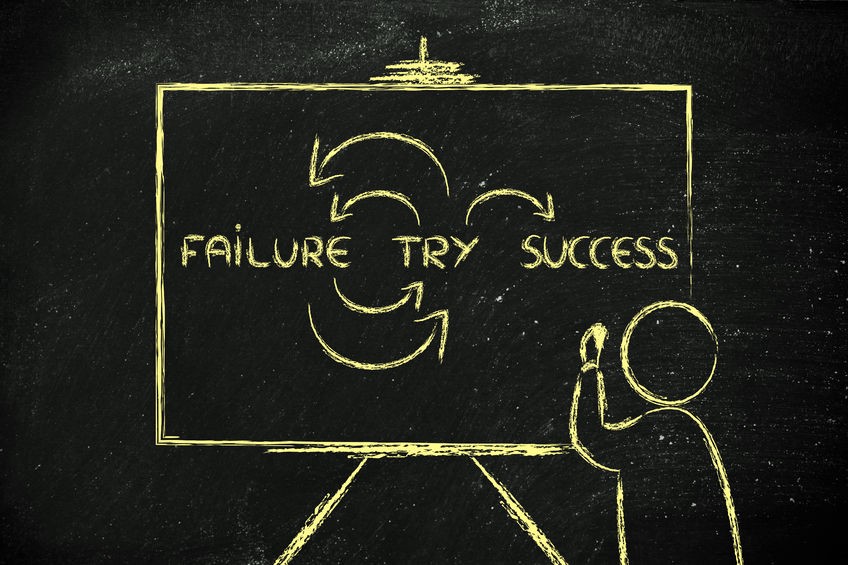Sometimes you just can’t win. Make the most of it.
You wanted it and you worked for it, but all your effort was for naught. Maybe your relationship collapsed, your company went under, or you got fired. Maybe you failed your exams even though you’d studied hard, or couldn’t find a publisher for your book, or dropped what would have been the winning touchdown pass. All these failure always teach us the lessons.
1. Think about others’ past failures (as well as your own).
Doctors and therapists who treat fear have long known that exposure to the object of fear can make it seem more ordinary and thus less threatening. Exploring this idea, Lin and her colleagues set up an experiment several years ago in which students learned either about famous scientists’ successes and failures or about only their successes. The researchers found that studying the failures motivated students to better handle their own defeats and helped them obtain significantly higher grades than students who learned only about those scientists’ successes.
2. Stop angling for success.
One of the reasons failure can be so crushing is that we set goals of success, instead of improvement and learning. Chasing success might seem like the right path, but it’s a mistake—and an especially easy one to make in a world obsessed with résumés. Lin noted in an email that the value we create in work and life has a lot less to do with our accomplishments than with our knowledge and experience, which include the education we derive from falling short.
3. Keep your ideals front and center.
Worthy goals are generally motivated by something deeper than success. In her conversations with Nobel laureates, Lin said, she has found that “they all have insatiable passion and hunger to discover the truth about a problem. Winning a Nobel Prize was never these people’s motive for their hard work.” This isn’t just a moral principle; it’s also a practical one. Unlike dreams of winning accolades, our core, intrinsic values are “resistant to disillusionment,” as researchers put it in the Journal of Personality and Social Psychology.

Some people face more losses and disappointments than others, due to luck, circumstances, judgment, or even a tendency to take a lot of risks. But no matter who you are, failure will find you. The question is not whether you will fail but how you will use your failures.












